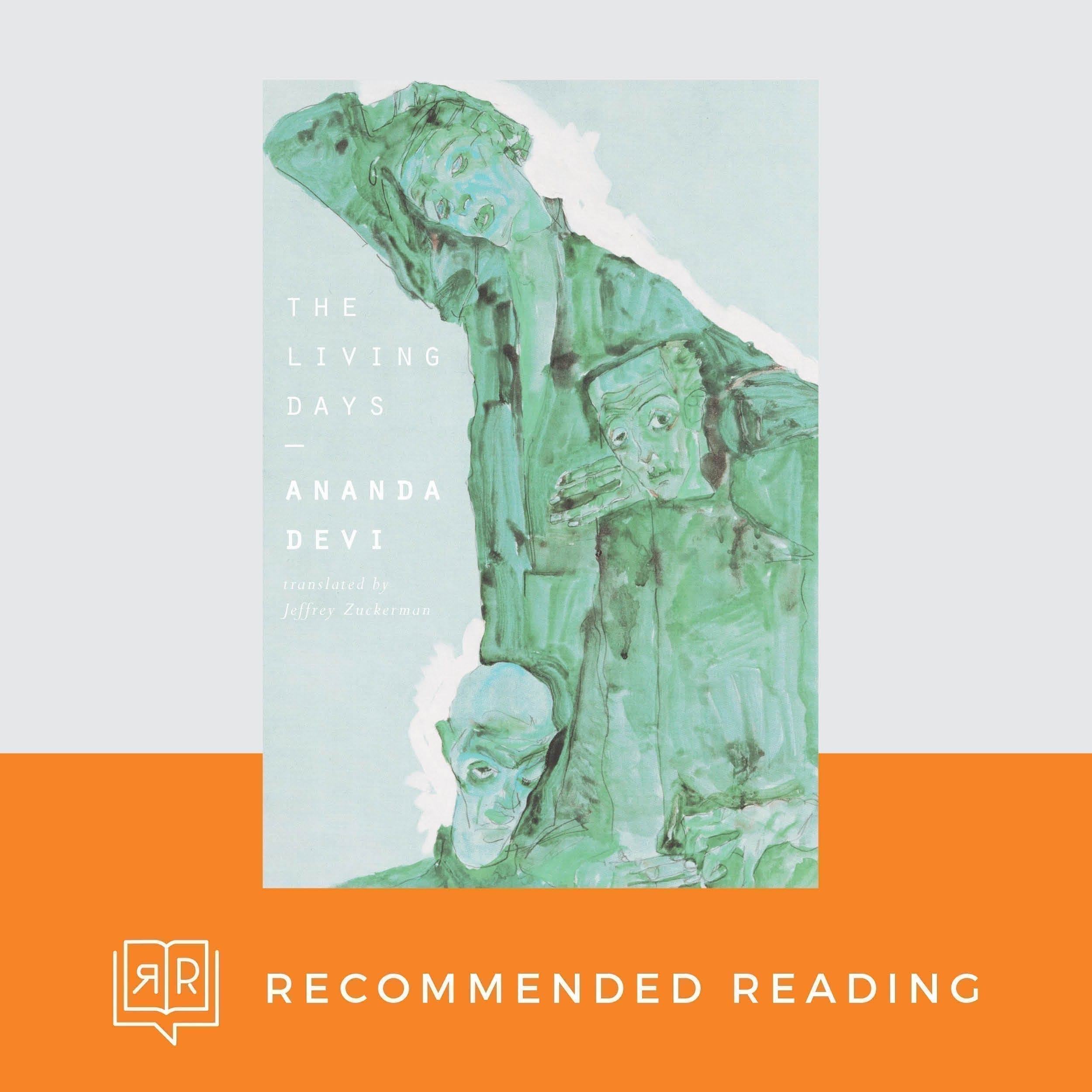Indie Review: The Living Days by Ananda Devi, Translated by Jeffrey Zuckerman

A Realistic Fairy Tale.
Kirkus describes The Living Days as “a gorgeously written, profoundly upsetting fairy tale of race, class, power, and desire.” Profoundly upsetting? Yes. A gorgeously written fairy tale? No.
The portrayal of Cub and his poverty-stricken family living in the ghetto implies Mary’s behavior is permissible – almost saviour-like. As if the family’s plight is as wicked as a preying old woman. Somehow Mary’s dementia gives her a free pass to take advantage until the end of the book when Cub’s mother demands answers.
The time period of Devi’s book hints at being post 9/11, yet the division between race and class, power and desire, rich and poor, have been in existence since long before that historical event. Mary and Cub aren’t fairy tales. They’re fictional portrayals of real flesh and blood. Does the excessive purple prose in Devi’s writing make rape less ugly? Are the eloquent words supposed to make Mary’s desire less repulsive? Does Mary’s reclusive lifestyle and paltry self-esteem grant her permission to take advantage of an innocent child? Simply put, they don’t.
Perhaps Zuckerman’s goal is to raise awareness of such atrocities. It’s hard to say. The story line is drowned out by cliché situations with a single twist on the characterization of the abuser.

[cm_page_title title=”Continue Reading” subtitle=” Shelf Unbound”]
Article originally Published in the October/November 2020 Issue: Read Global, Books in Translation.
